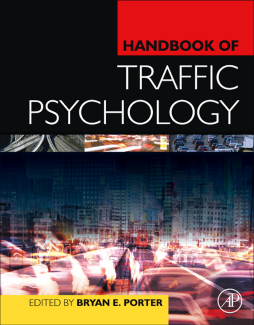
Additional Information
Book Details
Abstract
The Handbook of Traffic Psychology covers all key areas of research in this field including theory, applications, methodology and analyses, variables that affect traffic, driver problem behaviors, and countermeasures to reduce risk on roadways. Comprehensive in scope, the methodology section includes case-control studies, self-report instruments and methods, field methods and naturalistic observational techniques, instrumented vehicles and in-car recording techniques, modeling and simulation methods, in vivo methods, clinical assessment, and crash datasets and analyses. Experienced researchers will better understand what methods are most useful for what kinds of studies and students can better understand the myriad of techniques used in this discipline.
- Focuses specifically on traffic, as opposed to transport
- Covers all key areas of research in traffic psychology including theory, applications, methodology and analyses, variables that affect traffic, driver problem behaviors, and countermeasures to reduce the risk of variables and behavior
- Contents include how to conduct traffic research and how to analyze data
- Contributors come from more than 10 countries, including US, UK, Japan, Netherlands, Ireland, Switzerland, Mexico, Australia, Canada, Turkey, France, Finland, Norway, Israel, and South Africa
"Overall, I was impressed by the breadth of coverage of Handbook of Traffic Psychology as well as the inclusion and representation of several international sources. Although there are some chapters that are less comprehensive in scope, they all contribute to the overall effort. The editor should be commended for gathering an impressive list of authors who, in my opinion, adequately fulfilled his ambitious goals for the handbook."--PsycCritiques June 27, 2012, Vol. 57, Release 25, Article 8
